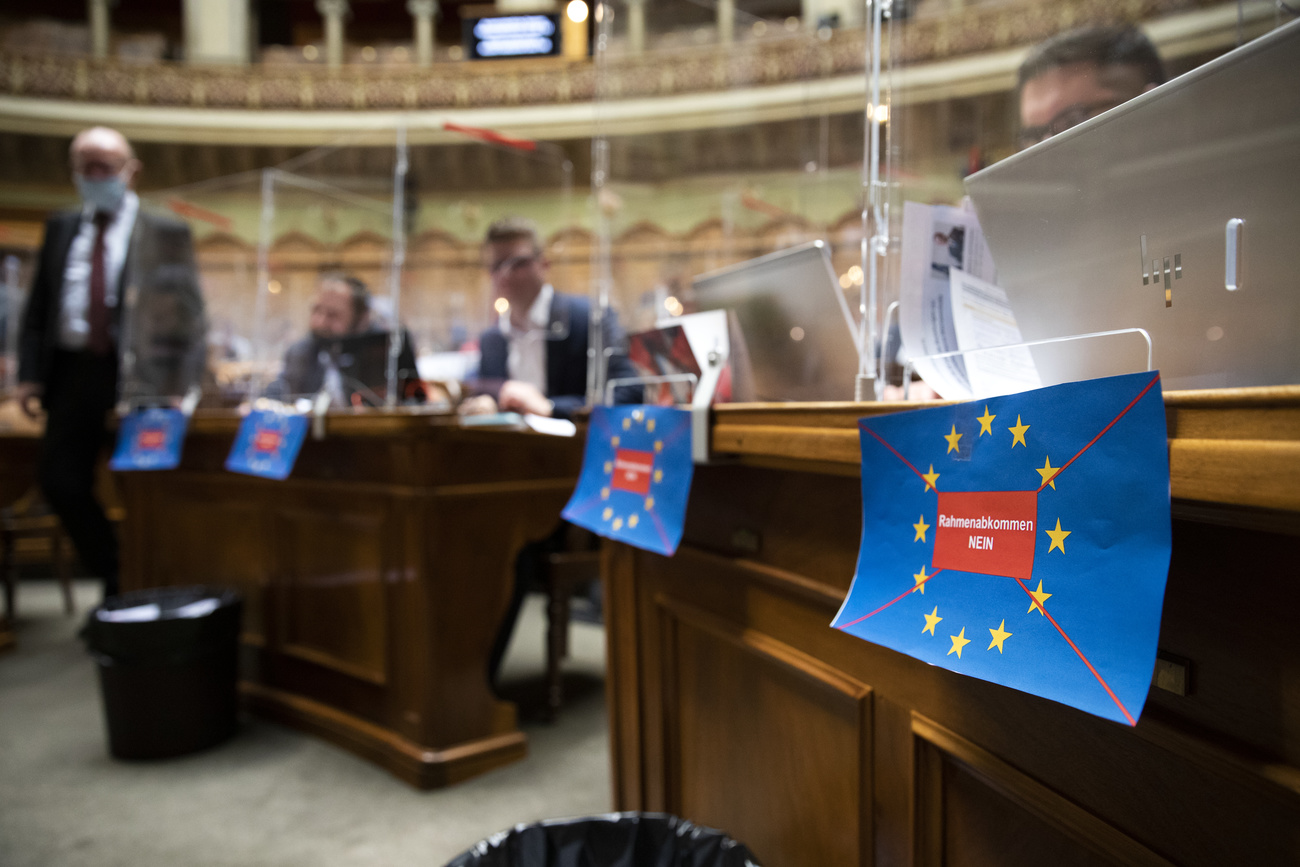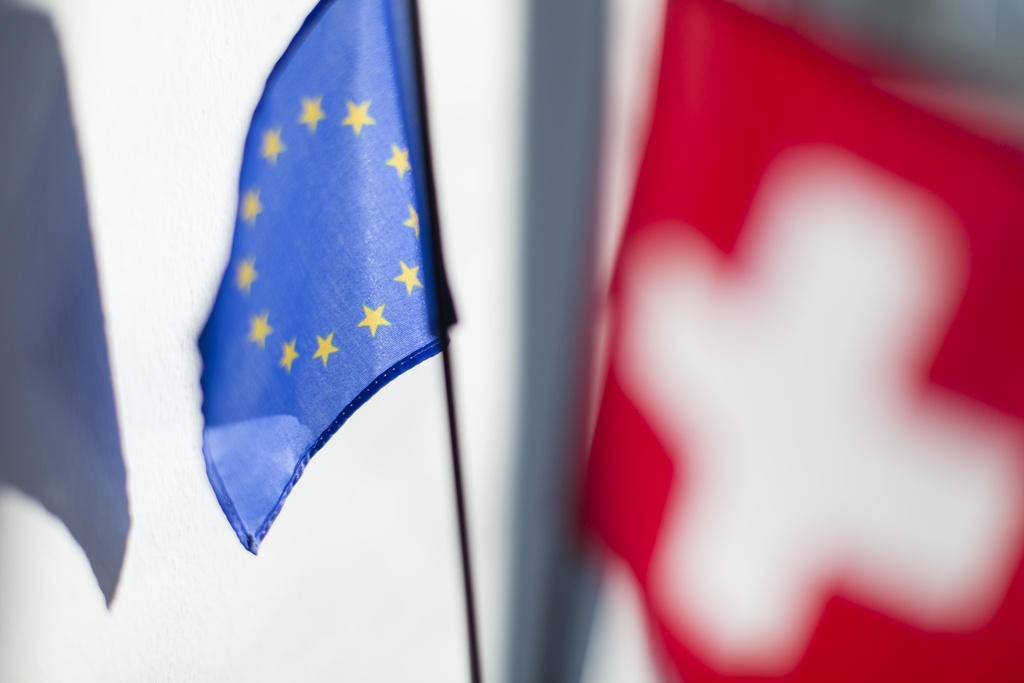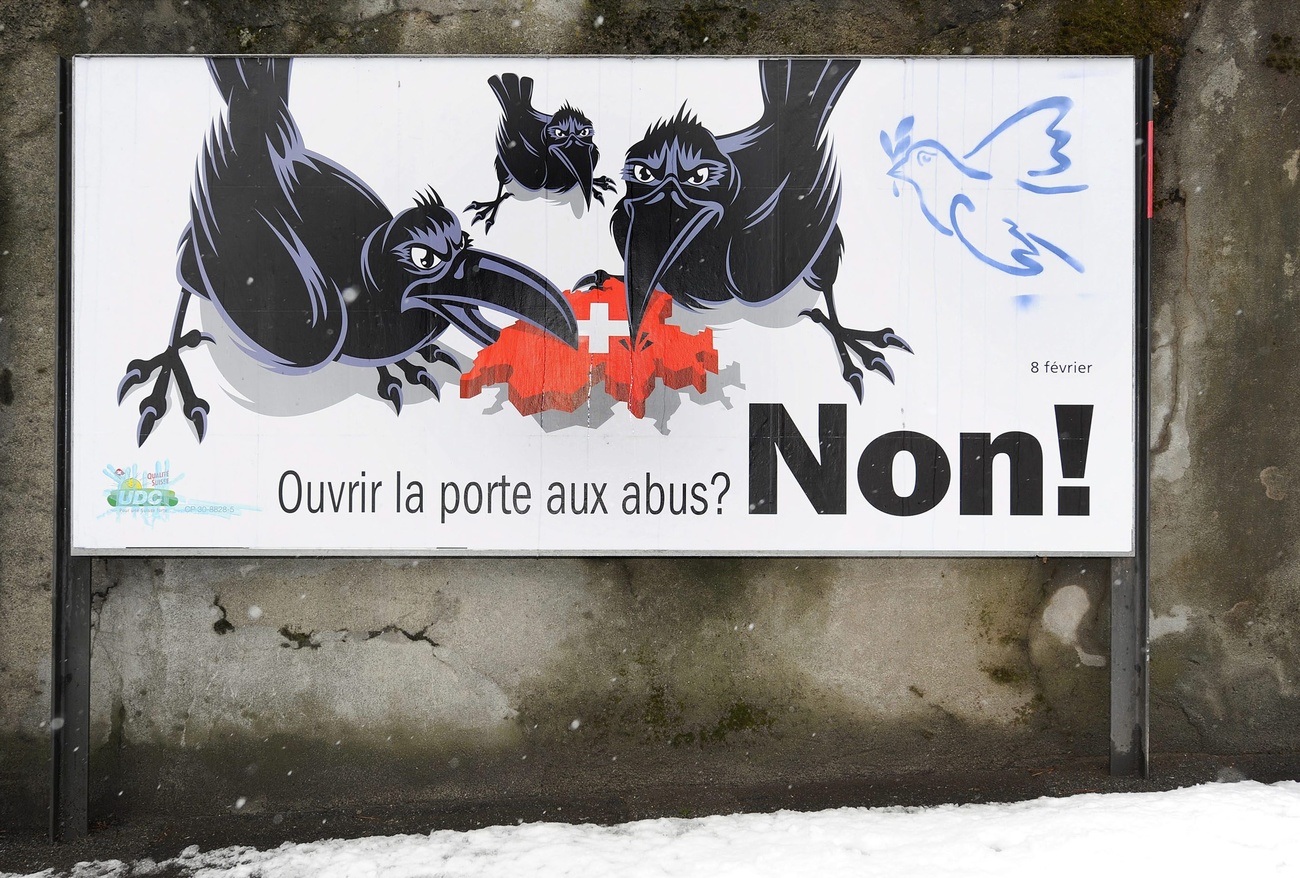
Inching forward on Swiss-EU relations

Bern and Brussels have been trying to recast their relationship with a “framework agreement” for seven years. While the EU position is quite clear, disputes over the accord are continuing in Switzerland.
Three months ago, it seems that talks between Bern and Brussels could finally start up again. After the Swiss population in September 2020 rejected the popular initiative to limit freedom of movement between Switzerland and the EU, there were no more obstacles to renewing negotiations over the framework agreement. In Brussels, officials had been waiting impatiently for discussions to begin. Switzerland stood accused of holding up the debate for a long time.
Now another quarter has passed. And still nothing has happened. The pandemic shifted priorities and slowed down processes – but it’s also true that the EU is taking its time.
European Commission President Ursula von der Leyen welcomed the result of the referendum and called on the Swiss government to forge ahead with negotiations on the framework agreement. But it is also understood that Switzerland is a secondary issue for von der Leyen. Because of a reshuffle, the position of chief negotiator for the Switzerland portfolio is unoccupied at the moment. The Swiss chief negotiator, Livia Leu, has to hold tight for a while.
There is some irony to the current situation. The former EU Commission President Jean Claude Juncker complained repeatedly about constantly rotating Swiss presidents whom he had to get to know afresh each time in order to negotiate. He held 23 personal discussions with four Swiss presidents and so had more talks with Switzerland than with other non-EU states. Now, under Juncker’s successor, the EU has put Switzerland in a similar position – and it is difficult to ascertain the extent to which this holding pattern is intentional. Or what specific tips Juncker gave to his successor about dealing with Switzerland.
What is at stake?
At some point, a new chapter in relations between Switzerland and the EU should finally begin. The bilateral relationship remains good, but it consists of a patchwork of treaties that have arisen over decades. A so-called institutional agreement, on which negotiations began in 2014, should provide a unified legal foundation for the future.

More
What is this EU framework deal?
There are three points that are still the subject of heated debate in Switzerland: one is a system that would enable “dynamic” updates of the bilateral agreement; another is its design, and the third is the introduction of a court to settle future disputes.
The EU ambassador to Switzerland, Petros Mavromichalis, made the Brussels position clear in several interviews after taking office in the autumn: the EU is ready to go into more detail but is not willing to negotiate from scratch. From the EU’s perspective, the negotiations were completed at the end of 2018. If there is a need to clarify anything, of course the EU is ready to talk. But the government has to make its position clear. The government did this in November, though it didn’t announce it publicly.
Swiss opposition
Meanwhile, heated discussions are continuing. The conservative right Swiss People’s Party is particularly critical: it seized the opportunity to put the framework agreement back on the table.
The head of the biggest parliamentary faction, the People’s Party lawmaker Thomas Aeschi, demanded that the framework agreement should be completely scrapped. And he didn’t mince his words: as it stands, it’s a question of “relaunching the neocolonial European Economic Area,” and signing it would be “reprehensible” from a legal and political point of view. This “treaty of indenture” is nothing more than “subjugation” and “Switzerland’s surrender.” Numerous parliamentarians from the party have made similar comments.

But there is criticism from the left, too. The unions fear that wage protection rules will be eased, and this puts the Social Democrats, which are closely allied with the unions and are generally Europe-friendly, in a dilemma. Most other parties also want new negotiations on this and have not taken a clear stance.
It is noticeable that criticism in Switzerland has increased over the years. Now most parties are pointing a finger at the government and hope that it will extract substantial concessions in new negotiations, or break off the whole exercise. The message is – we need leadership, finally.
What are the arguments?
There are numerous critical points, which seem to be of a technical nature at first glance. But in the end, these are questions of sovereignty and concern about economic wellbeing. For critics from the right side of the spectrum, the adoption of EU law – a condition for membership of the European internal market – is a central point. Switzerland already does adopt EU law, but the devil is in the semantic details: for now, Switzerland does that “autonomously” – at a later stage, this would happen “dynamically”. Given that the European Court of Justice would be the last court of appeal in settling disputes, the critics say “foreign judges” will impose EU law on Switzerland.
From the left, there is above all concern that Switzerland’s high wages will be undermined without appropriate measures to protect them. Wage protection rules have protected Swiss employees since the labour market was opened. This point is particularly sensitive, because Switzerland is seeking exceptions that contradict the core tenets of the internal market.

What does the EU say?
There has been no major sea-change and the relationship remains basically good. There is no external reason to rush, either for Switzerland or for the EU. But if years go by without an agreement, there is a danger that relations could fray. The EU has already made clear that it doesn’t want to update treaties that expire. That has direct consequences for Switzerland. A foretaste of this came with the stock market equivalence agreement, which the EU didn’t extend at the end of 2018. There are means to exert pressure on both sides, but the difference in the size of the two parties sets the tone.
At the moment it is unclear whether changes to the framework agreement can still be made, and if so, what these could be. The Swiss Foreign Minister Ignazio Cassis has now told parliament that he expects the agreement to be put to the electorate one way or another. But it might take a while to get to that point: the basis of the negotiations is that until everything is agreed, nothing is agreed. The question is whether this basis is valid for a country in which the people have a voice until the very last moment.

In compliance with the JTI standards
More: SWI swissinfo.ch certified by the Journalism Trust Initiative





























Join the conversation!